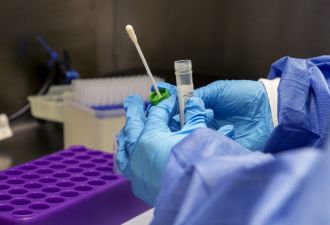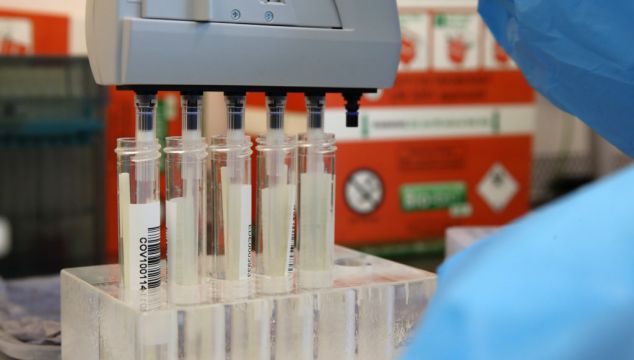The doctor who discovered the new Omicron variant of Covid-19 has said some are "panicking unnecessarily" over the discovery.
Dr Angelique Coetzee, chair of the South African Medical Association, said she first encountered the variant in a man in his early 30s who presented with tiredness and a mild headache, but none of the usual coronavirus symptoms.
“What we are seeing clinically in South Africa, and remember I’m at the epicentre – that’s where I’m practising – it’s extremely mild. For us, that’s mild cases,” she said.
Asked on the BBC’s The Andrew Marr Show if the UK was “panicking unnecessarily”, she said: “I think you already have it there in your country and you’re not knowing it, and I would say, yes, at this stage I would say definitely.
“Two weeks from now maybe we will say something different.”
South Africa was the first country to detect the new Omicron variant of Covid-19, and travel bans and curbs have since been placed on southern African nations by countries around the world - prompting South Africa’s health minister to say that travel restrictions on his country are “uncalled for”.
Joe Phaahla claimed international travel restrictions will not prevent the spread of the virus and instead suggested regular testing and mask wearing, including for flying, are effective measures to help live with the virus.
Speaking on LBC radio, he said he has heard from medical professionals in his country that young unvaccinated people have been admitted to hospital with the variant form of Covid-19.
'Mild' cases
Dr Phaahla said he has heard anecdotally that cases of the new variant have been “mild” and mostly in the young, for whom vaccination rates are relatively low in South Africa.
Asked if young unvaccinated people are ending up in hospital with the new variant in South Africa, Dr Phaahla said: “Yes. Younger, unvaccinated people … 65 per cent of those they’ve admitted, who are mainly younger people, are actually those who are unvaccinated.”
He said he has heard from GPs that the “majority of the people they’ve been seeing are mild”, but stressed it is “not proper research”.
Asked what he knows about how unwell people are who have the new strain, Dr Phaahla said: “It is still too early at this stage.

“Some of what I’ve read from some of our clinicians has been that thus far they have not witnessed severe illness. Part of it may be because the majority of those who are positive are young people.”
He added at this stage they do not know what proportion of the younger people who have Omicron are ending up in hospital.
He added that wealthier countries like the UK need “definitely” need to give more vaccine doses to countries in Africa.







